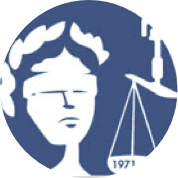Police officers generally must have reasonable suspicion that a crime is being or has been committed in order to pull a driver over. It’s not enough for a police officer to have a feeling or a hunch that something is happening. However, it doesn’t require that the officer have actual knowledge. So what exactly is reasonable suspicion then? You can think of it as a hunch based on evidence.
Therefore, a police officer doesn’t have the legal right to pull someone over because he or she has a feeling that someone is driving while intoxicated. Rather, he or she must have reasonable suspicion that this is so. This reasonable suspicion must first be based on a crime pertaining to the operation of the vehicle, such as going the wrong way down a one-way street.
Once he or she has the requisite evidence to pull the driver over, he or she must also have evidence that the driver is under the influence of drugs or alcohol before starting a DWI test.
Who Is Considered Intoxicated?
Texas holds that someone is legally intoxicated if he or she has a blood alcohol concentration (BAC) level above .08, the legal limit. (For minors any amount of alcohol would be considered intoxication since consumption is illegal.)
Reasons for Being Pulled Over
While non-moving violations, such as an expired registration sticker, can be enough to pull someone over, most of the time a driver is pulled over for one of the following reasons:
The Driver Seems to Lack Awareness
If a police officer notices that a driver is driving as if he or she is unaware of traffic signals, stop signs, and other vehicles, the officer can pull the driver over.
The Driver is Speeding or Braking Inappropriately
If a police officer notices that a driver is speeding up inappropriately, failing to brake when necessary, or braking suddenly – especially at odd places, the officer can pull the driver over.
The Driver is Exhibiting Poor Judgment
If a police officer notices that a driver is exhibiting poor judgment, such as tailgating the car in front of him or her, driving back and forth between lanes, making illegal turns, or other increasingly risky behavior, the officer can pull the driver over.
Not Enough Evidence by Itself
It’s important to note that some actions commonly associated with drunk driving are not enough by themselves to equate to reasonable suspicion in order for a police officer to pull the driver over. These actions include:
- Making wide turns
- Riding the centerline
- Straddling two lanes
- Weaving in and out of traffic
- Driving off of the road
Evidence for Reasonable Suspicion of Intoxication
If a police officer pulls a driver over for one of the above actions, it’s likely that he or she will be suspicious that the driver is intoxicated, since these actions are often associated with drunk driving. However, in order to conduct a DWI test, the officer must also notice signs that the driver is intoxicated, such as:
- Bloodshot eyes
- Slurred speech
- The smell of alcohol
- Delayed/slower reflexes
- Poor balance
- Disorientation
If any one of these signs is noticeable, the police officer will generally ask the driver to adhere to a field sobriety test as well as to submit a sample of their breath (through a breathalyzer test) or their urine.
The Attorneys at Ceja Law Firm Help Those in Houston Who Have Been Charged with Drunk Driving
If you have been charged with driving under the influence of drugs or alcohol in Texas, it is important to take the situation very seriously
At Ceja Law Firm PLLC, we understand the serious nature of such a criminal charge and the impact that it can have on your life. That’s why we will work to help you obtain the best possible outcome. To learn more or to schedule a free consultation, contact us today!










